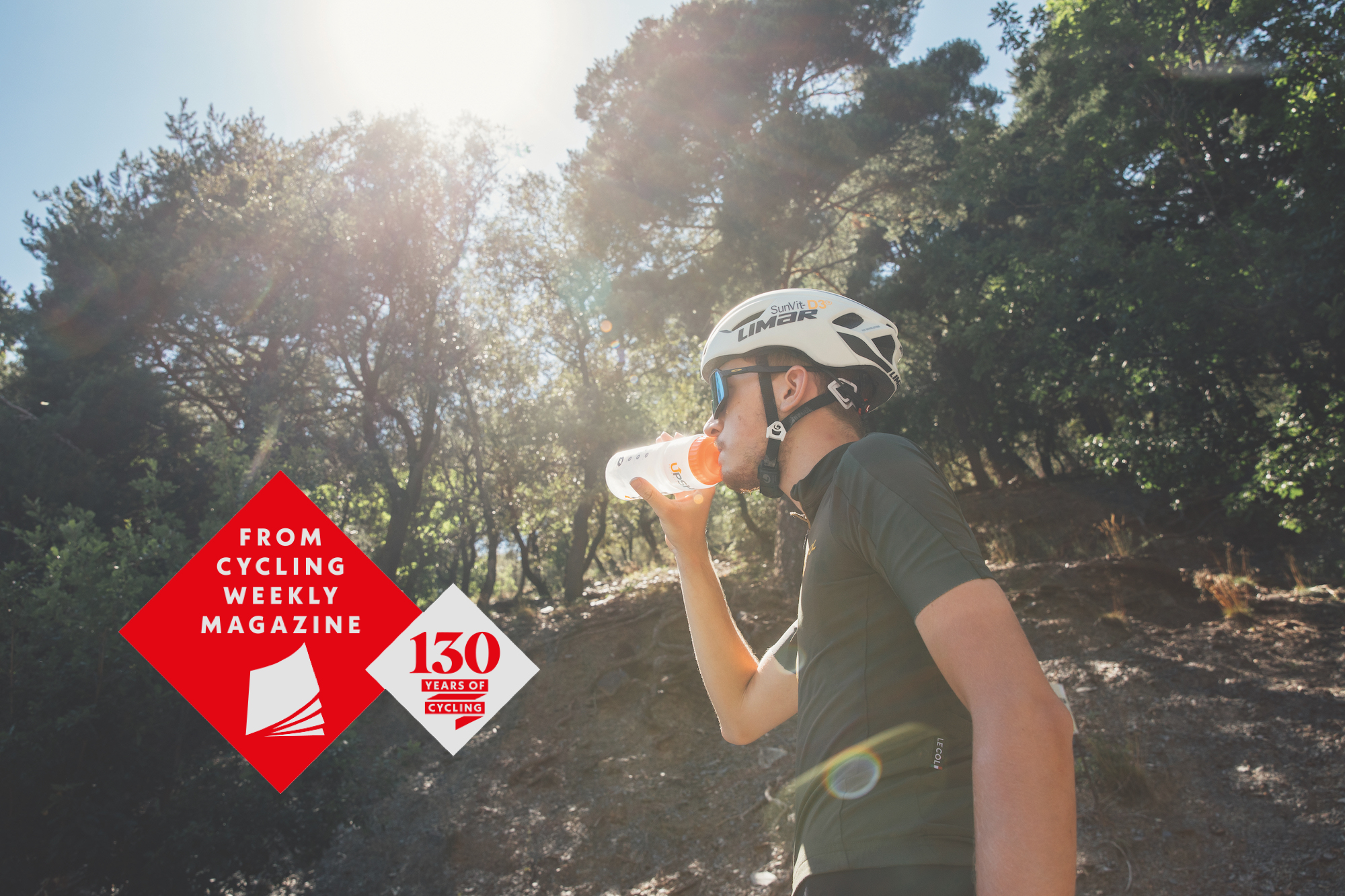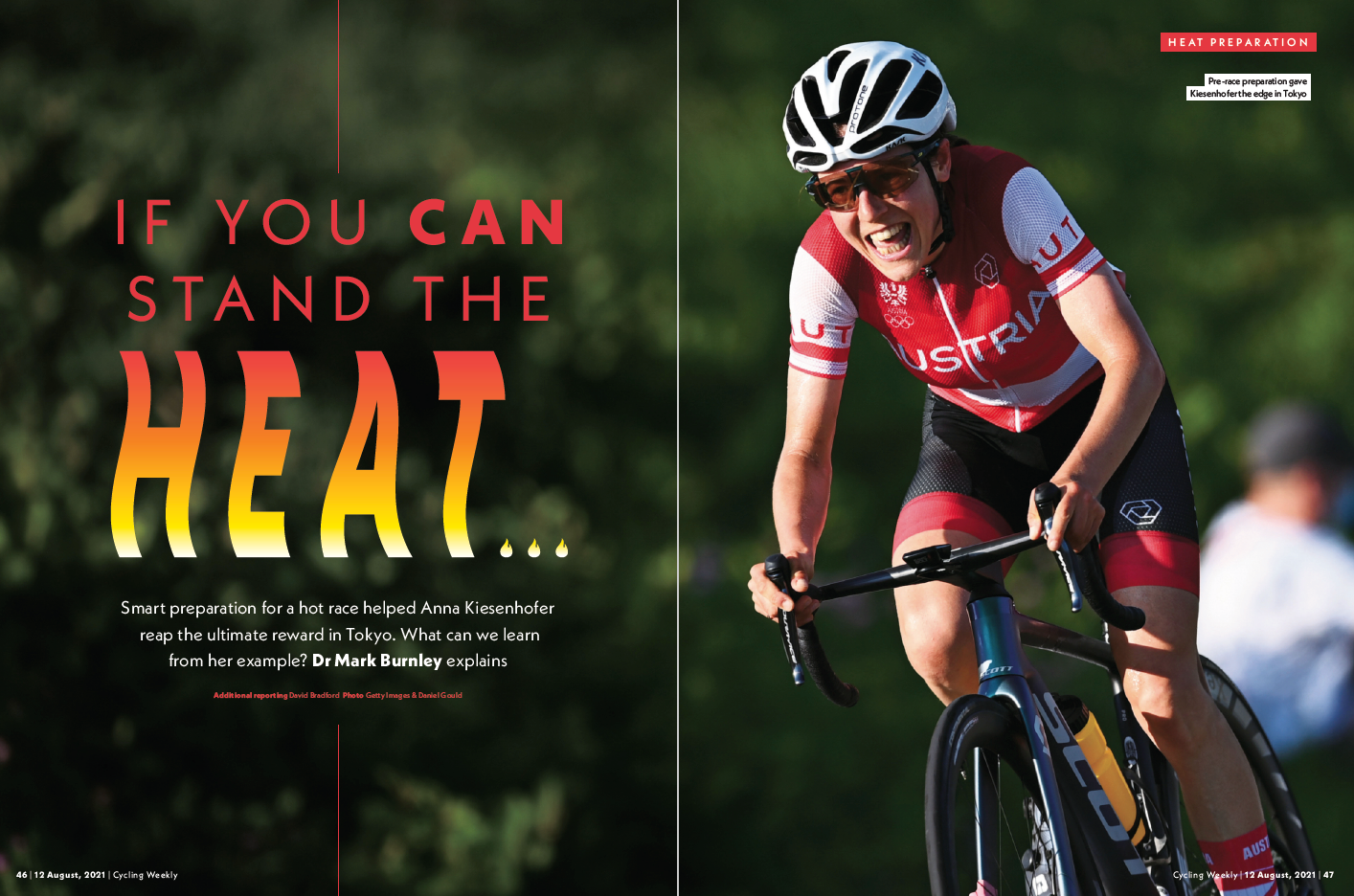Train your body to beat the heat
How the pros train their bodies to cope with the heat, and why it's easier to do it than you might think.

The latest race content, interviews, features, reviews and expert buying guides, direct to your inbox!
You are now subscribed
Your newsletter sign-up was successful
A few weeks ago, rank outsider Anna Kiesenhofer attacked from the first few seconds of the women’s road race at the Tokyo Olympics. On paper, the 30-year-old stood almost no chance of even escaping, let alone winning, against a peloton packed with medal contenders. But Kiesenhofer produced the kind of gun-to-tape performance not even a movie script writer could have dreamed up.
The Austrian ended up so far ahead that the favourites forgot about her – Annemiek van Vleuten crossed the line thinking she had won gold. But the day belonged to Kiesenhofer, and in the aftermath of victory it became clear that she had done a lot of homework during the build-up – specifically in relation to how she would deal with the Tokyo heat.
>>>>Subscribe to Cycling Weekly magazine for more great fitness features
What can we learn from her example, bearing in mind that climate change is making high temperatures a more common feature of our riding, even here in the UK?
Kiesenhofer surged away from her breakaway companions 40km from the finish. In post-race interviews, she admitted that she had never before emptied herself so absolutely. The 140km race took Kiesenhofer almost four hours to complete in temperatures over 30ºC and with humidity above 60 per cent.
Race duration, course difficulty and environmental conditions combined to mean that pre-race preparation, as well as in-race fuelling and hydration would be critical to success. Everybody in the race knew this, but Kiesenhofer had prepared specifically.

CW contacted Anna to find out more. “First, I should say that I'm good at racing in the heat – I seem to deal with it better than most people,” she said. “I did specific heat acclimation in the lead-up to Tokyo.
The latest race content, interviews, features, reviews and expert buying guides, direct to your inbox!
I didn't have access to sophisticated facilities… What I did was actually quite primitive: I just got on the turbo in my winter kit and did sessions in an overdressed state.”
In the five weeks before the Olympic road race, Kiesenhofer did three 90-minute overdressed sessions per week, monitoring her temperature using a Core sensor (a non-invasive device worn on the HRM strap), aiming for 38.7ºC.
“It’s a bit of a shame as a scientist, but my conditions were not really controlled,” she admitted; the basic aim was to get used to feeling very hot and sweaty. When Kiesenhofer got to Tokyo, she found that dealing with the heat was “a walk in the park” compared to her overdressed sessions on the turbo. In fact, she carried on wearing winter kit during her acclimatisation rides.
You can read the rest of this feature in the Aug 12 edition of Cycling Weekly magazine, on sale in shops and online. If you want more great fitness features that will help you improve and enjoy your riding, why not subscribe? You can save on the cover price and get the magazine delivered to your door every Thursday.
Founded in 1891, Cycling Weekly and its team of expert journalists brings cyclists in-depth reviews, extensive coverage of both professional and domestic racing, as well as fitness advice and 'brew a cuppa and put your feet up' features. Cycling Weekly serves its audience across a range of platforms, from good old-fashioned print to online journalism, and video.